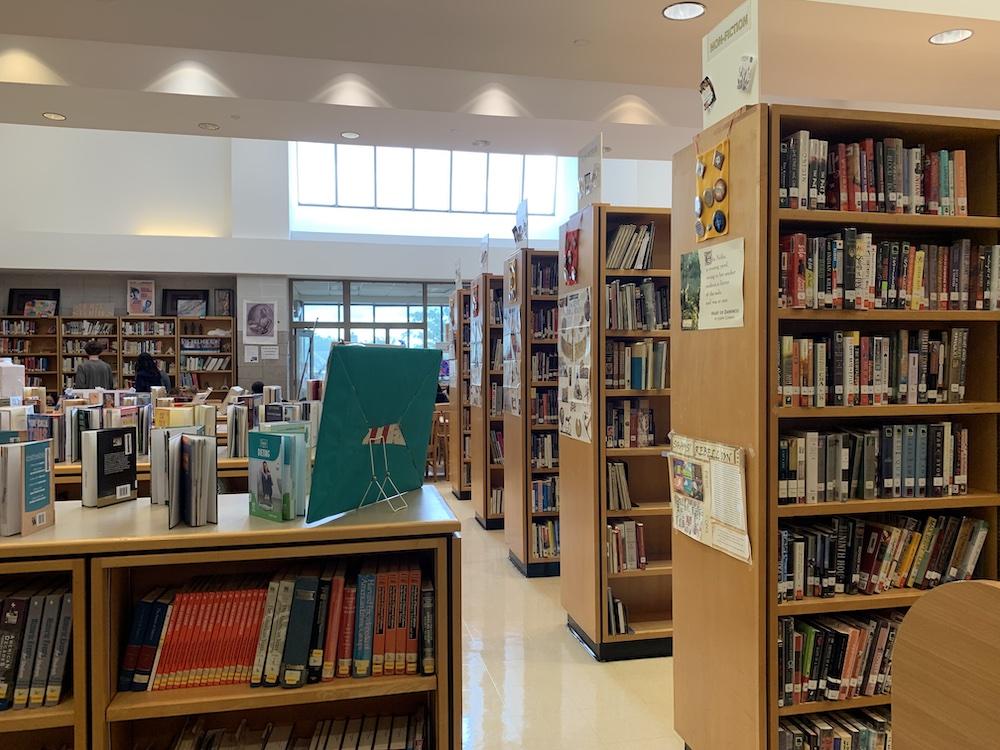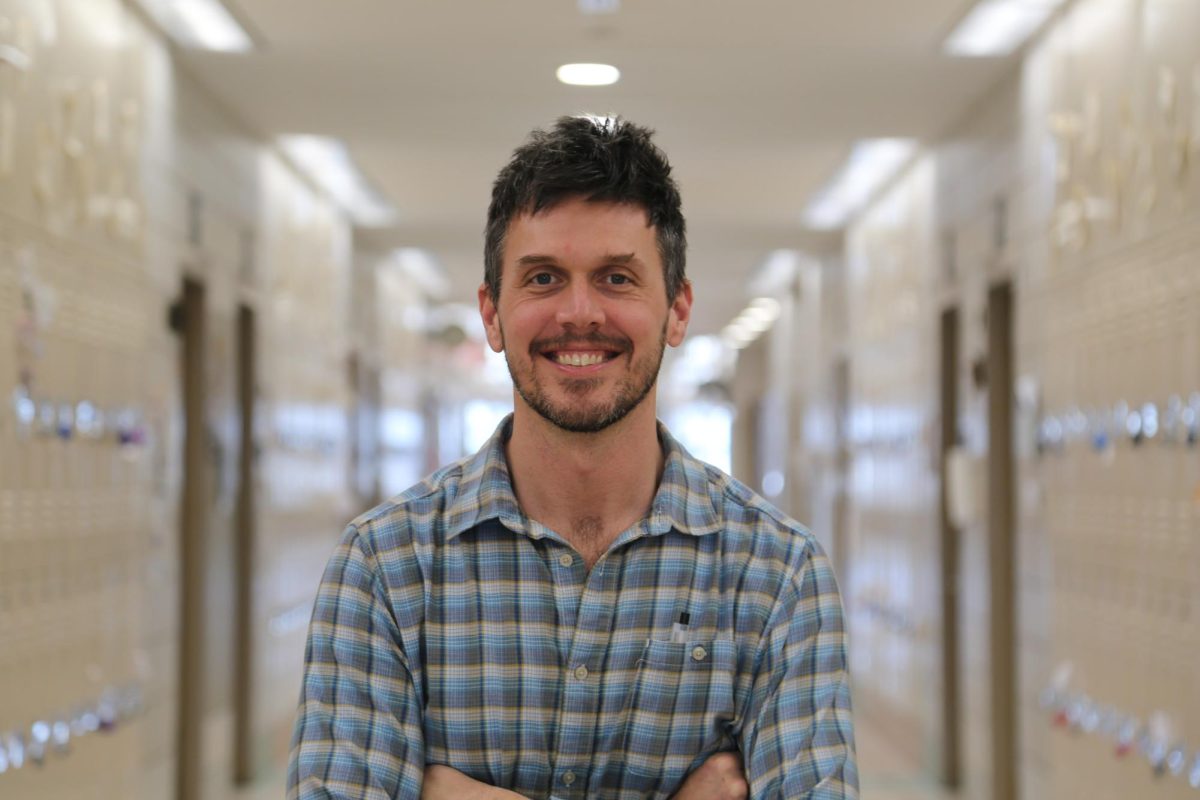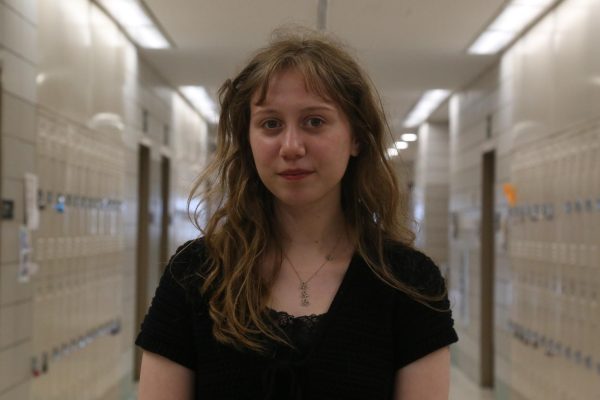
For Townsend Harris Librarian and New York Library Association (NYLA) president-elect Arlene Laverde, working as a librarian has been a pathway to guiding students in discovering their interests. However, witnessing the nationwide campaign of book-banning and censorship in school libraries has brought a renewed attention to her profession. As a result of recent bans, which target books that depict racial, gender, and sexual identities or include graphic scenes, Ms. Laverde organized a school-wide read-in in protest earlier this school year. Since then, she has organized several promotional book events, including her annual book-themed March Madness event. In a follow-up, she spoke with The Classic about her job as a librarian and her own contributions to protecting the freedom to read.
While books have been banned throughout history, there has been a recent surge. What is your stance on these bans?
I am completely against banning and censoring any materials. With that being said, there are some materials that are just not appropriate for a school library. One of the examples I use all of the time is the book Fifty Shades of Gray [by E.L. James], a bestseller. It simply was not appropriate for a high school setting. Kids used to come to the library and ask for this book. Some of them actually wanted to read it, while others just wanted to see my reaction. I would tell them ‘This is not a book that is appropriate for a school library, but if you want to read it, you can go to the public library. If you have a library card, just knock yourself out.’ One of the things I turn around and tell people is that I am very careful about the material I select for this library. I make sure that it is high quality. I make sure that stories pertain to students. Some of them are a bit graphic – we have All Boys Aren’t Blue in this library. We have a lot of stories about the LGBTQ community. We have a whole display on transgenderism because of the Day of Visibility. Everybody’s story deserves to be told. Everybody’s story is not sunshine and ponies. Sometimes, kids don’t know how to tell their own stories until they read somebody else’s. It gives them the language to understand that they are not alone. Books on homosexuality: we have a lot of kids in high school, middle school, and even elementary school, who are questioning. They don’t know. Their families are afraid to talk about it.
Elementary schools have been at the forefront of the national conversation surrounding book bans in light of Florida’s Parental Rights in Education bill, otherwise popularly referred to as the “Don’t Say Gay” bill.
In an elementary school, a book about LGBTQ – people have this idea that it is going to be sexually explicit but it’s going to be talking about their families: ‘I have two dads’ or ‘I have two moms.’ ‘My dads and I went to the museum,’ or ‘My moms and I went to the park.’ A quote I have seen talks about how students have, for their school career, read books on straight relationships and straight families, but they are still gay. The books didn’t turn them straight. Why do you think that books will turn someone gay if they read about two gay characters, or two lesbians, trans people, or whatever? A straight book did not turn a gay kid straight, so why would a gay book turn a straight kid gay? Reading is the first place kids learn about empathy; you learn that there are other people in the world with different experiences. As different as these experiences are, in a way, they are all kind of the same. We get in trouble, and we want to do stupid things, but you come from a family with a single dad or a single mom. It helps you understand that while we are different in so many ways, we are also similar in so many ways, just like books trying to be banned because of race, or people of color in books. If you look around our library, I am very proud of the collection we have. I have added many diverse authors, characters, and stories. Before I got here, there were very few. Everybody deserves to see themselves represented.
In the past, has THHS had any problems with banned books or had any complaints? If so, how did the school react?
I am very fortunate so far that we haven’t had anybody come back and question anything we have done regarding books. I don’t know about the classrooms, but nobody has come to push back that this book should not be in this school.
On November 24, you organized a read-in as a way of supporting the freedom to read. Did you feel it was successful?
I don’t want to say it was an overwhelming success, but it was a success that everyone read. When I first put it together, I was really scared that when I walked around, I would see teachers still teaching, and kids would be doing what they want. Nevertheless, when I walked around, everybody was reading. It was wonderful to see people actually read whatever they want. The freedom to read what you please and remember that at one time in your life, you actually enjoyed reading, even if it was just listening to stories. When you are young, from kindergarten to around fourth grade, kids actually like reading because it’s usually fun and nobody’s pressuring you. It was successful for the senior classes because I went into government classes and we actually talked about censorship. I got a lot of feedback, and almost all of the feedback I got was telling me that students found the experience relaxing. They told me that we should do this more often. One of the things I’m working on is getting a built-in reading time of one part of the school day. On a daily basis, to just read what you want- and it really can be whatever you want; comic books, the newspaper, manga. Just read something!
What change do you hope to bring about the school through your role as librarian?
My plan is definitely to bring the culture of reading back into the school. I don’t want to say that all Townsend students were voracious readers as children, but most were. In order to get into this school, you have to read. In order to have a high vocabulary or high intellectual abilities, you must read. I want to remind people that reading was and still can be something that is relaxing. Another thing I brought into the library is picture books. People tend to think that picture books are for children only, but they are not. Picture books are for everyone. I just got this one called The History of Prehistory [by Mick Manning] and it may be targeted for young kids, but it is okay to read this. Picture books are perfect for when you want to get information without reading a thousand pages. I love them. Anyone can read anything they want; it doesn’t matter what it is, as long as they read.
Turning to more personal topics, have you always wanted to be a librarian, or did you have any other ambitions you might have wanted to pursue?
I was actually an elementary school teacher before I became a librarian, and before that, I wanted to be a doctor. Unfortunately for me, as much as I wanted to be a doctor, my math and science grades were horrendous. So, in my senior year of high school, I got an internship at a school. I went to school for three periods and spent the rest of my day in a special needs school for kids with autism. I really enjoyed this, but working with the special education population was much more than I was capable of – they were severely autistic kids, some were nonverbal. It was wonderful to work with them, but very emotionally draining. I decided I wanted to teach and I went to Queens College to get my teaching degree. I was a classroom teacher in elementary school. I taught second to fifth grade for 16 years before I became a librarian.
What are your favorite aspects of being a librarian and a teacher?
I love working with you guys. That’s the best part. I love making them laugh and giving them things they need. As a librarian, helping them find the things they need for school or just life in general. I also like running into students after they graduate and them remembering who I am, fondly. I am yet to – knock on wood – find someone to remember me and tell me they hate me. I would be so sad! Teachers love to hear from alumni, even if it makes us feel old.
Photo by Gabriella Renzi




























